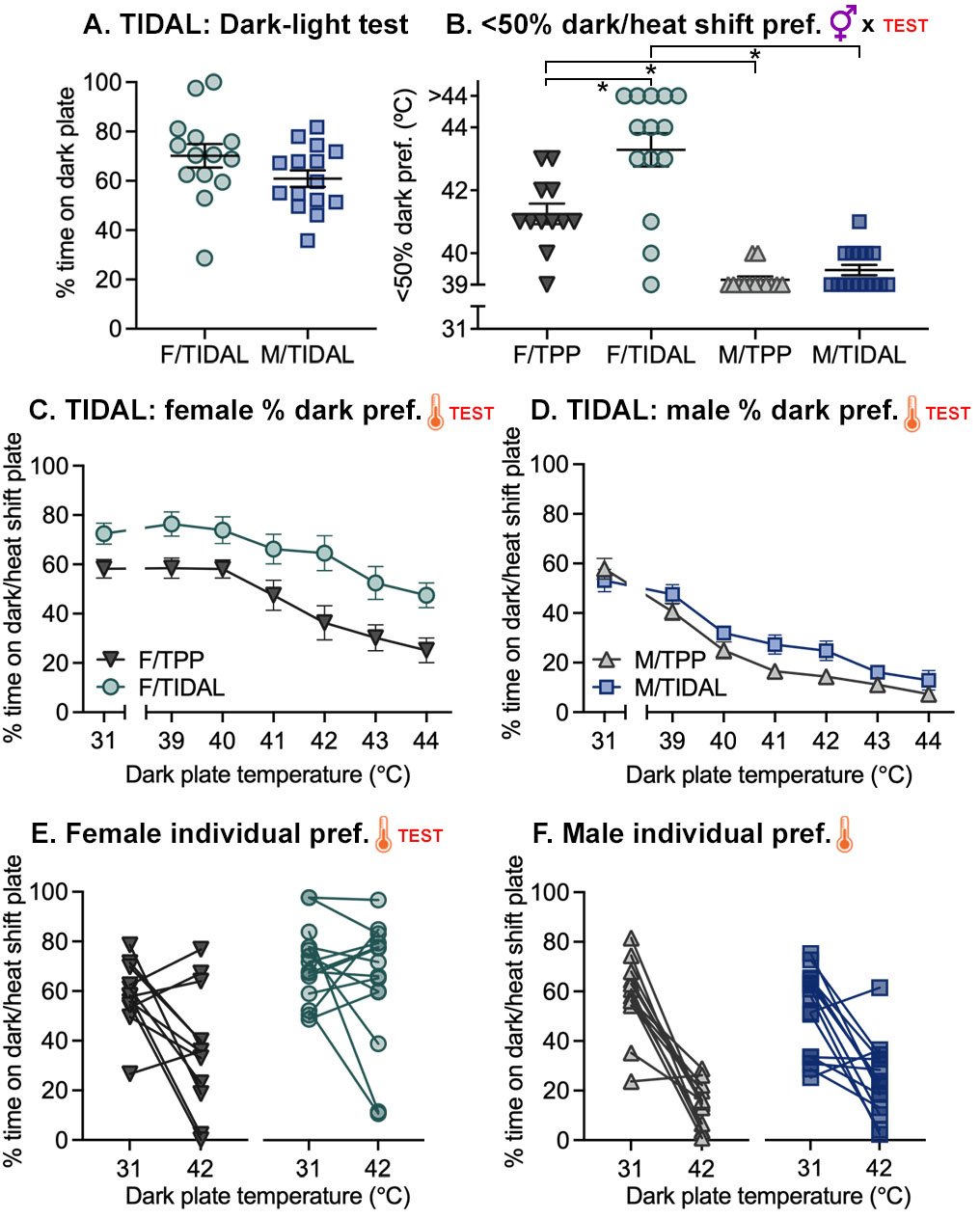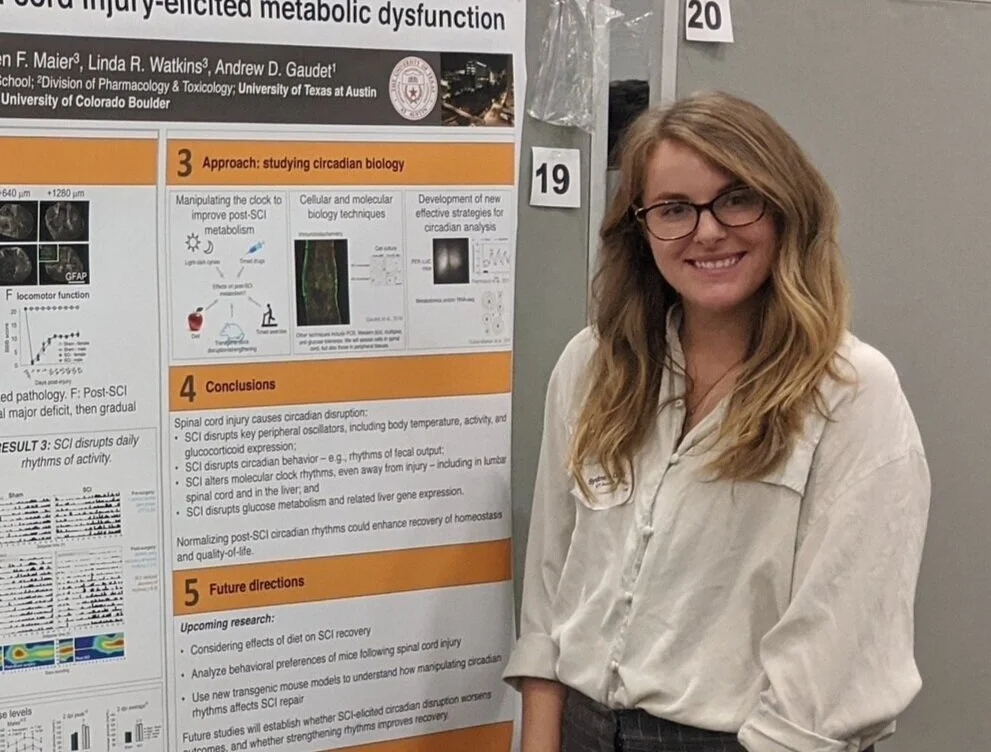We published a new preprint: “Anxiety-like behaviors in mice unmasked: Revealing sex differences in anxiety using a novel light-heat conflict test.” We have also submitted the manuscript for publication. The study was led by graduate student Sydney Lee. Thanks also to contributors Emily Greenough, Paul Oancea, and Laura Fonken.
Anxiety is twice as prevalent in women than men - yet tests for anxiety in rodents fail to consistently reveal sex differences. New preclinical approaches are required to unmask sex differences in anxiety.
Here, we reveal a new heat-light conflict test - the Thermal Increments Dark-Light (TIDAL) conflict test. In TIDAL, female (vs. male) mice exhibit strongly amplified anxiety behavior, recapitulating gender differences in human anxiety
The TIDAL test apparatus consists of two heat-controlled plates. One plate is illuminated and maintained at a "comfy" temperature. The other plate is dark - but its temperature increases incrementally to aversive temperatures..
Rodents can move freely between the plates. We found that females persist on the heated, dark plate to higher temperatures than males.
Thus, our novel TIDAL conflict test reveals robust anxiety behavior in females. Future studies should integrate TIDAL or other conflict tests to identify mechanisms and treatments for anxiety.



















